

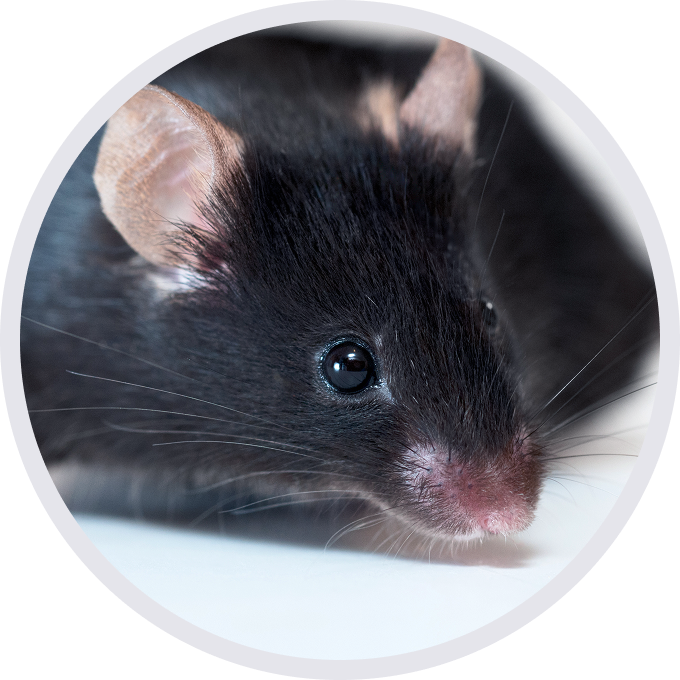
C57BL/6N-Cd180tm2(CD180)Bcgen/Bcgen • 111221
| Product name | B-hCD180 mice |
|---|---|
| Catalog number | 111221 |
| Strain name | C57BL/6N-Cd180tm2(CD180)Bcgen/Bcgen |
| Strain background | C57BL/6N |
| Aliases | LY64, Ly78, RP105 |
Gene targeting strategy for B-hCD180 mice.
Exon 2-3 of the mouse Cd180 gene that encodes the extracellular domains of protein was replaced by human CD180 exon 2-3 in B-hCD180 mice.
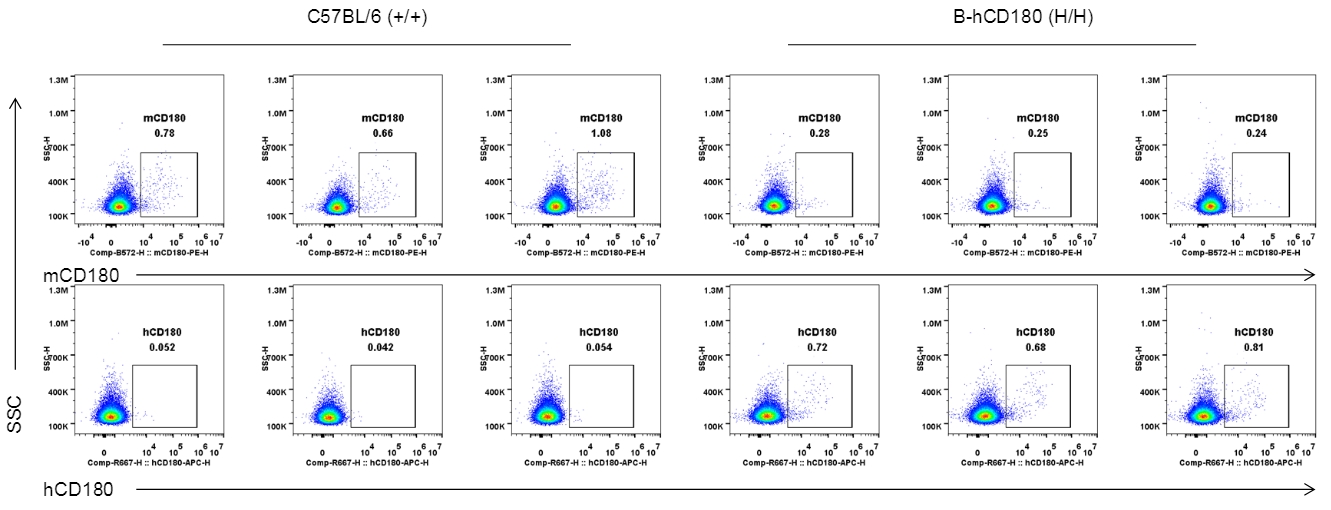
Strain specific CD180 expression analysis in homozygous B-hCD180 mice by flow cytometry. Splenocytes were collected from wild-type C57BL/6 mice (+/+) and homozygous B-hCD180 mice (H/H), and analyzed by flow cytometry with species-specific anti-CD180 antibodies. CD180 was not detectable in the T cells.
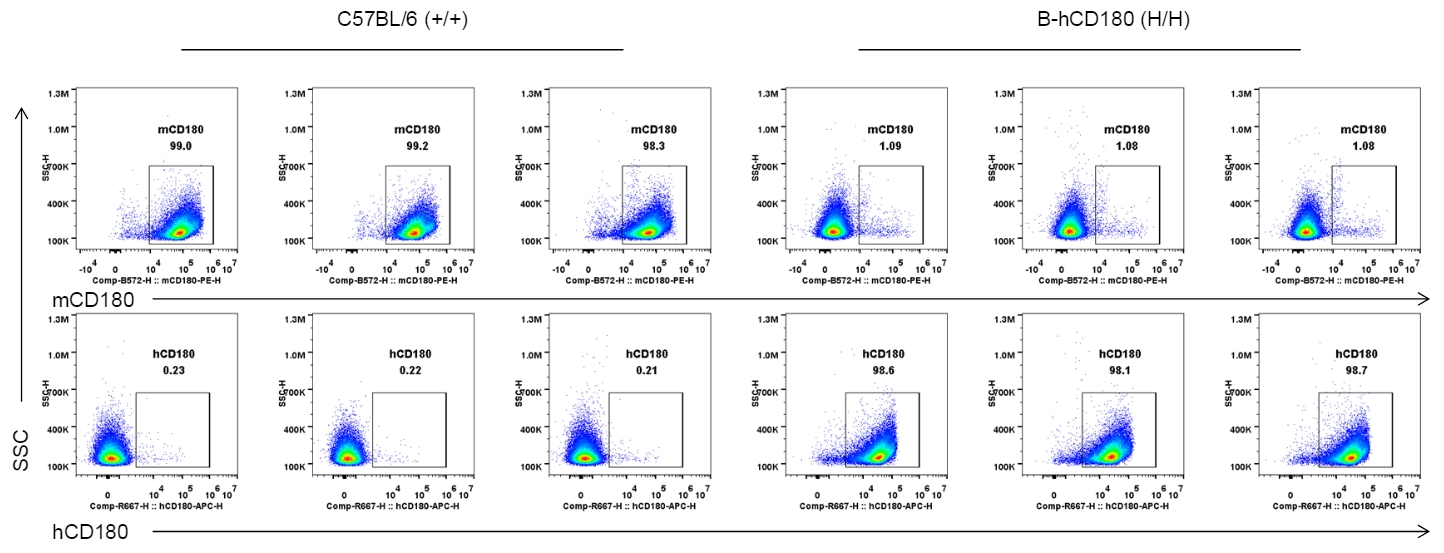
Strain specific CD180 expression analysis in homozygous B-hCD180 mice by flow cytometry. Splenocytes were collected from wild-type C57BL/6 mice (+/+) and homozygous B-hCD180 mice (H/H), and analyzed by flow cytometry with species-specific anti-CD180 antibodies. Mouse CD180 was only detectable in the B cells of wild-type C57BL/6 mice, while hCD180 was exclusively detectable in the B cells of homozygous mice.
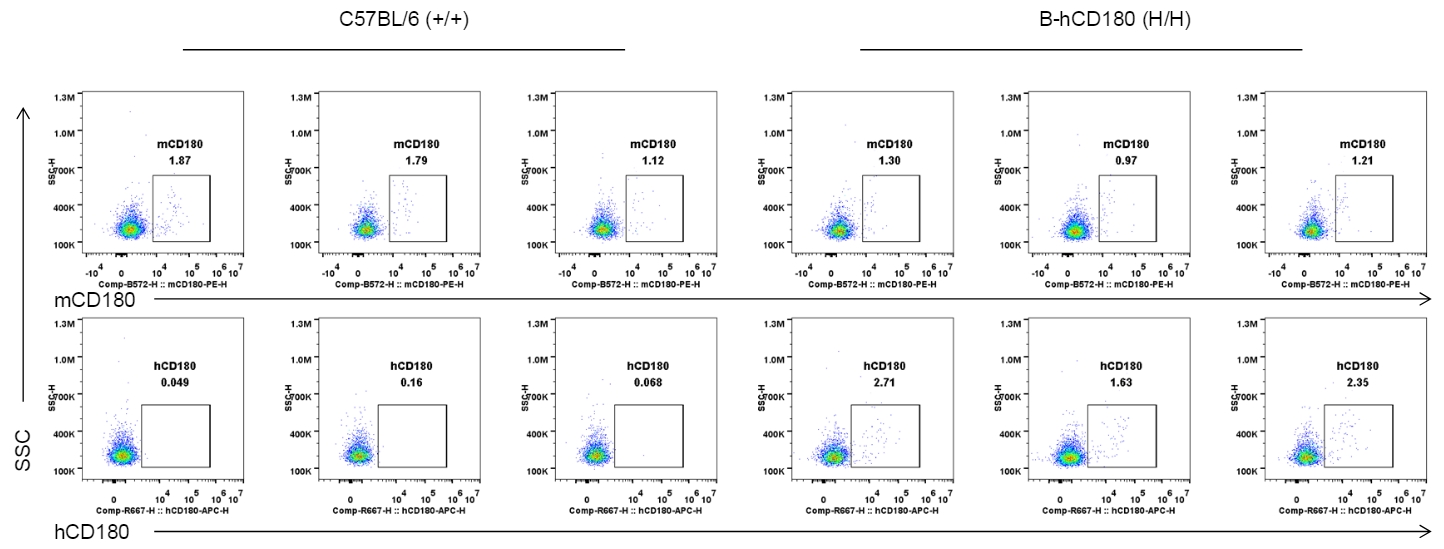
Strain specific CD180 expression analysis in homozygous B-hCD180 mice by flow cytometry. Splenocytes were collected from wild-type C57BL/6 mice (+/+) and homozygous B-hCD180 mice (H/H), and analyzed by flow cytometry with species-specific anti-CD180 antibodies. CD180 was not detectable in the NK cells.
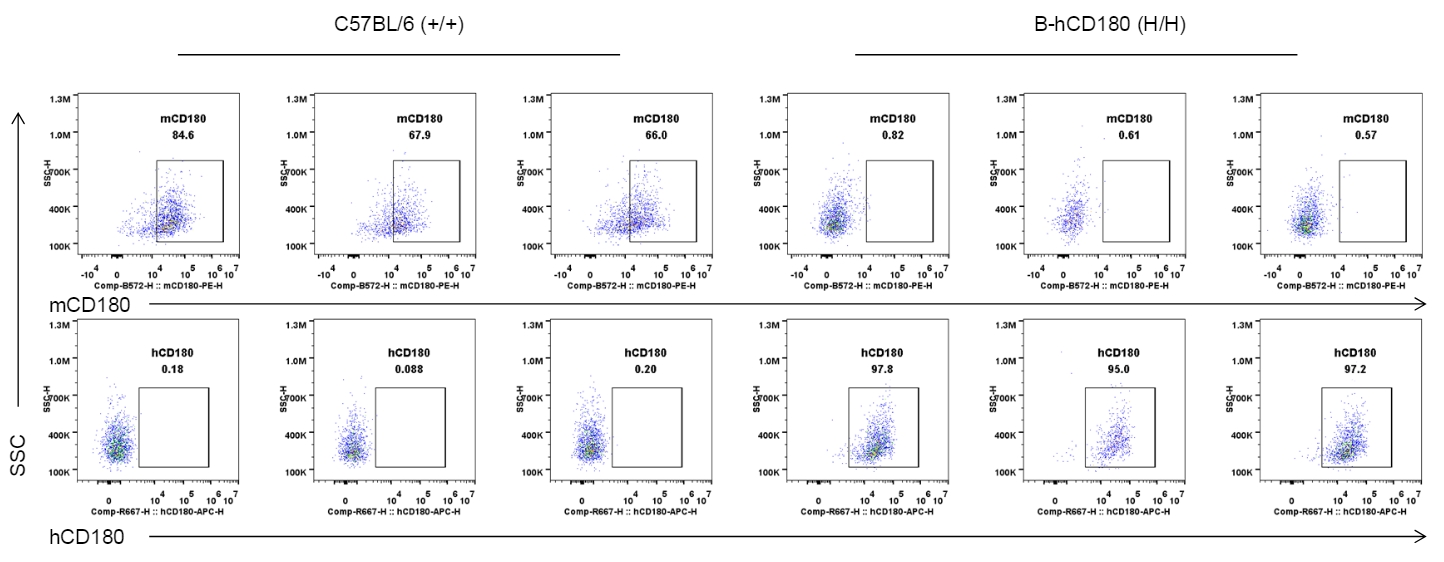
Strain specific CD180 expression analysis in homozygous B-hCD180 mice by flow cytometry. Splenocytes were collected from wild-type C57BL/6 mice (+/+) and homozygous B-hCD180 mice (H/H), and analyzed by flow cytometry with species-specific anti-CD180 antibodies. Mouse CD180 was only detectable in the DCs of wild-type C57BL/6 mice, while hCD180 was exclusively detectable in the DCs of homozygous mice.
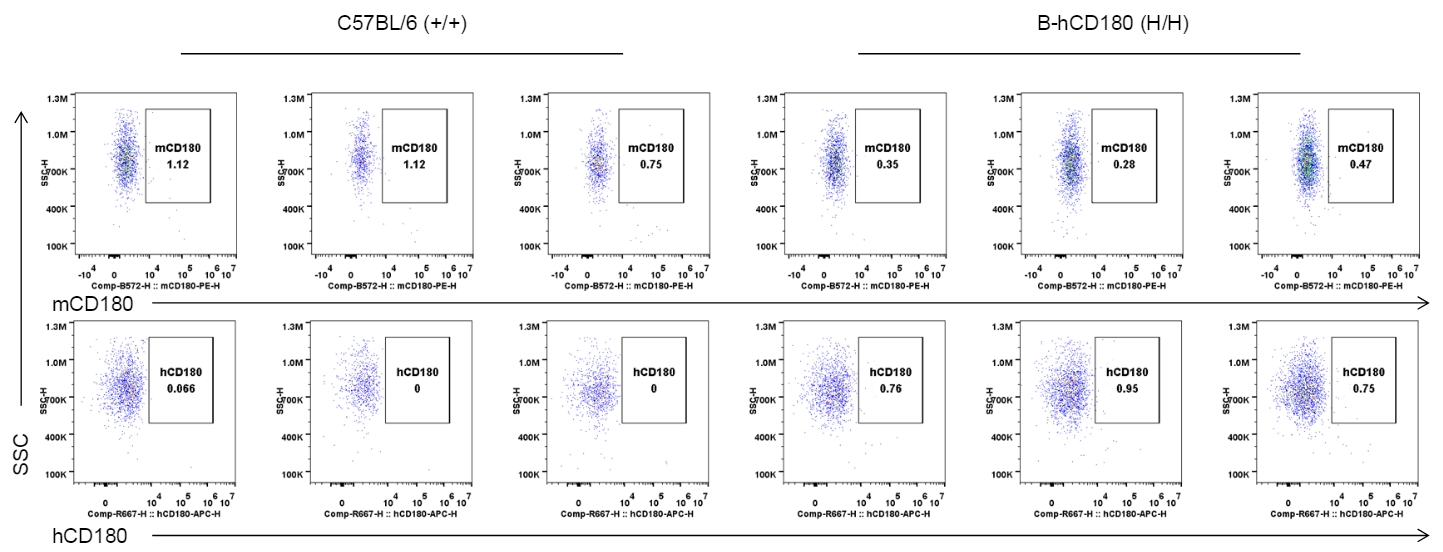
Strain specific CD180 expression analysis in homozygous B-hCD180 mice by flow cytometry. Splenocytes were collected from wild-type C57BL/6 mice (+/+) and homozygous B-hCD180 mice (H/H), and analyzed by flow cytometry with species-specific anti-CD180 antibodies. CD180 was not detectable in the neutrophils.
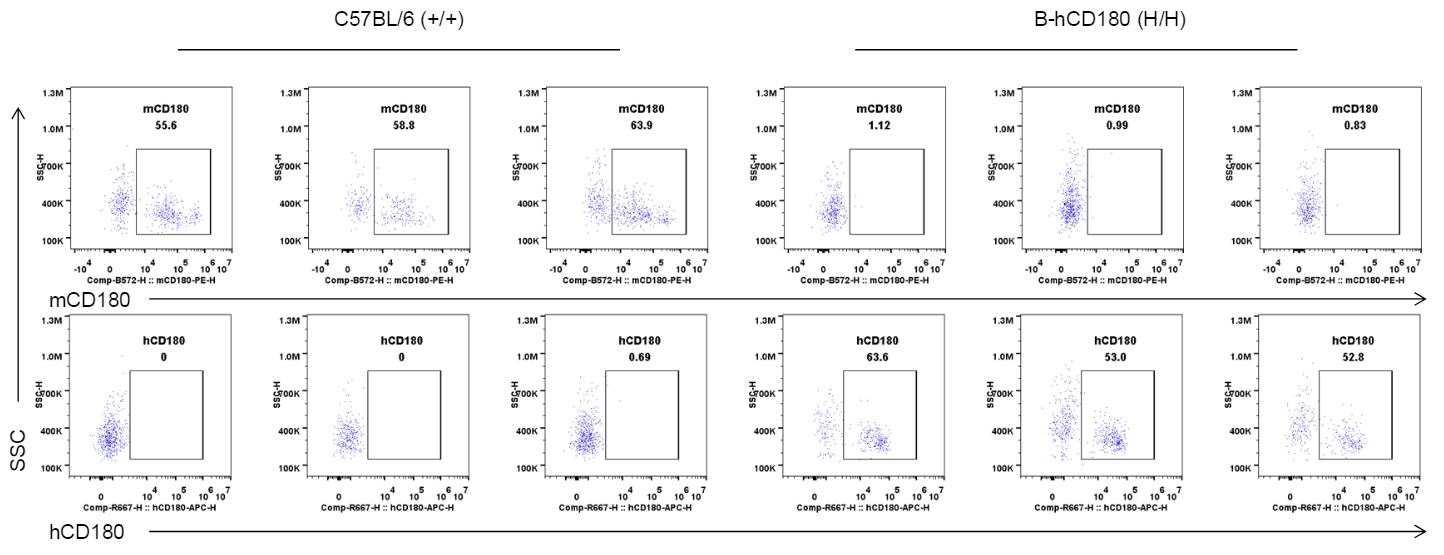
Strain specific CD180 expression analysis in homozygous B-hCD180 mice by flow cytometry. Splenocytes were collected from wild-type C57BL/6 mice (+/+) and homozygous B-hCD180 mice (H/H), and analyzed by flow cytometry with species-specific anti-CD180 antibodies. Mouse CD180 was only detectable in the monocytes of wild-type C57BL/6 mice, while hCD180 was exclusively detectable in the monocytes of homozygous mice.
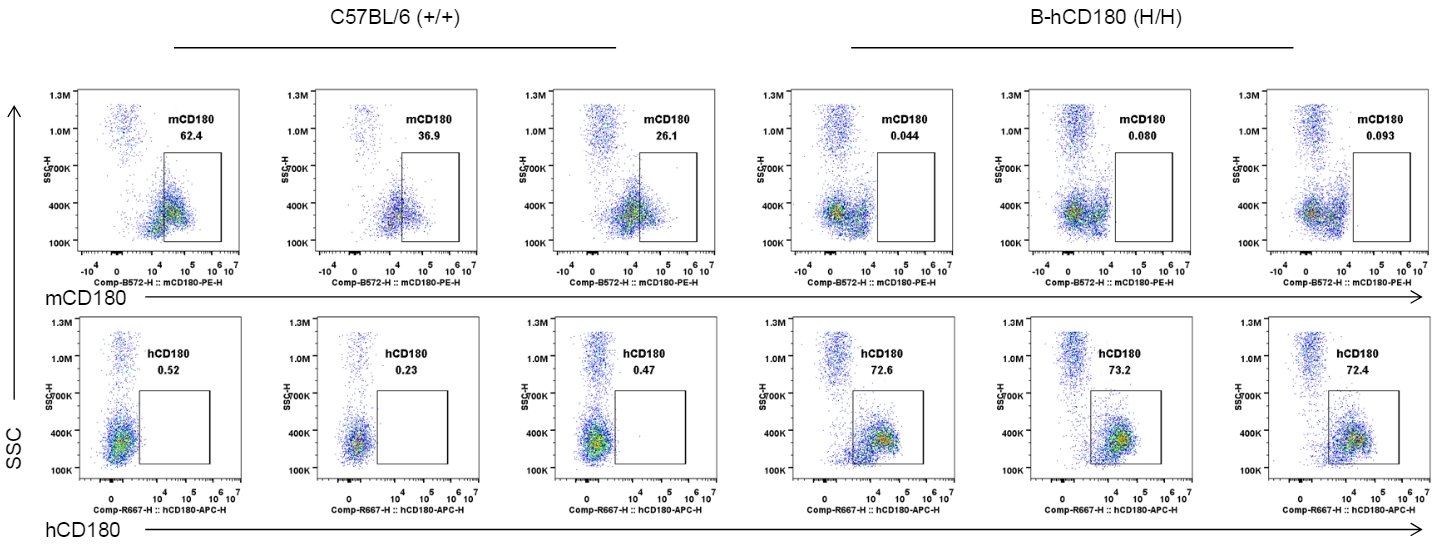
Strain specific CD180 expression analysis in homozygous B-hCD180 mice by flow cytometry. Splenocytes were collected from wild-type C57BL/6 mice (+/+) and homozygous B-hCD180 mice (H/H), and analyzed by flow cytometry with species-specific anti-CD180 antibodies. Mouse CD180 was only detectable in the macrophages of wild-type C57BL/6 mice, while hCD180 was exclusively detectable in the macrophages of homozygous mice.
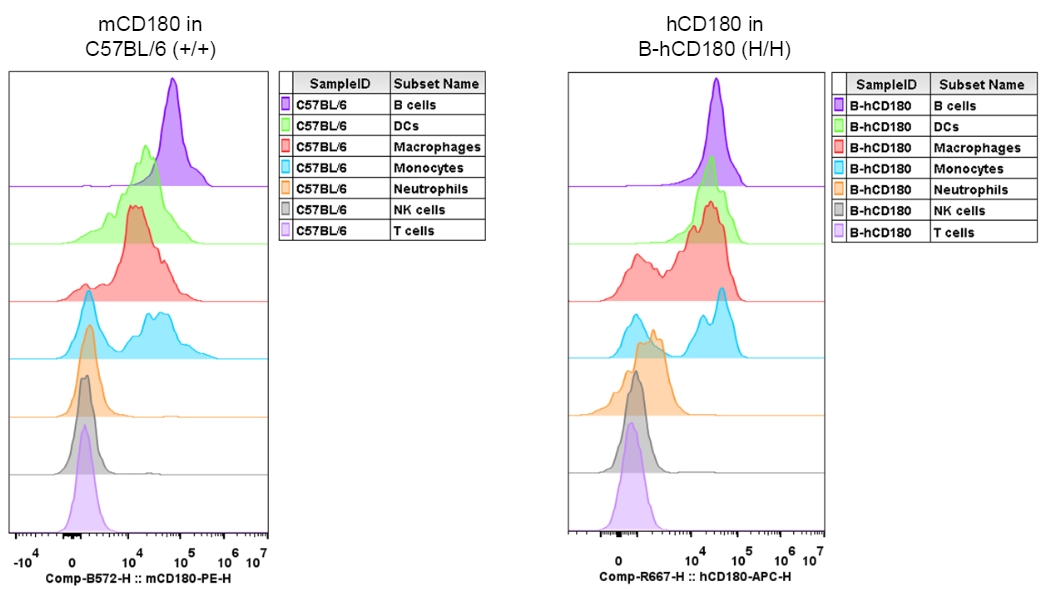
Strain specific CD180 expression analysis in homozygous B-hCD180 mice by flow cytometry. Splenocytes were collected from wild-type C57BL/6 mice (+/+) and homozygous B-hCD180 mice (H/H), and analyzed by flow cytometry with species-specific anti-CD180 antibodies. CD180 was not detectable in T cells, NK cells and neutrophils. Mouse CD180 was only detectable in B cells, DCs, monocytes and macrophages of wild-type C57BL/6 mice, while hCD180 was exclusively detectable in B cells, DCs, monocytes and macrophages of homozygous mice.
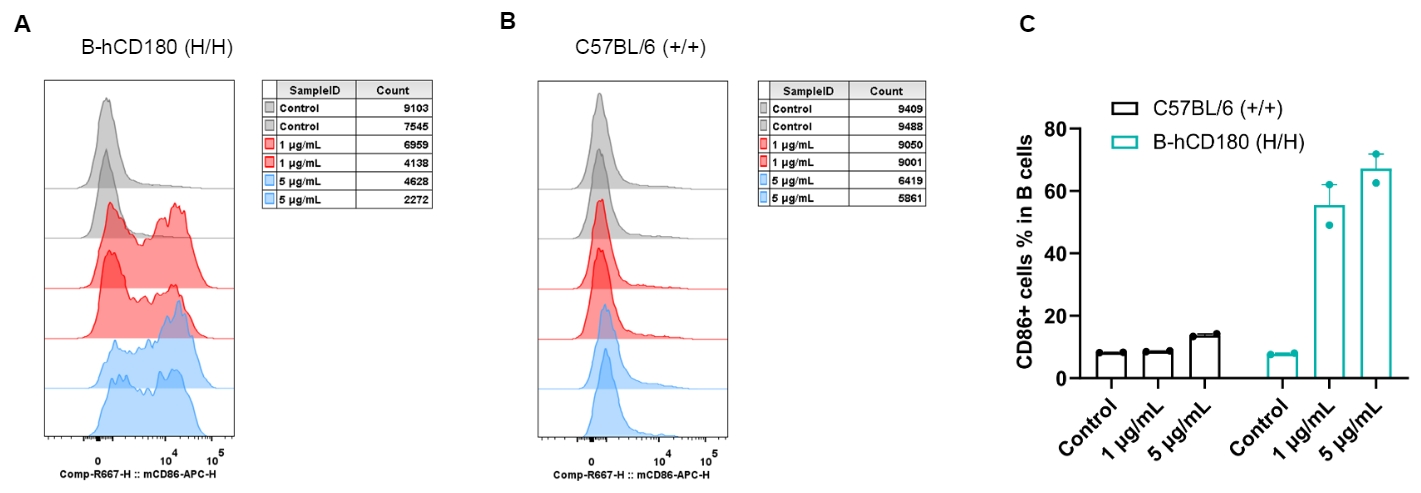
CD86 expression analysis in homozygous B-hCD180 mice by flow cytometry. Splenocytes were collected from wild-type C57BL/6 mice (+/+) (n=2, female) and homozygous B-hCD180 mice (H/H) (n=2, 1 female and 1 male), and cultured in 96-well plate with or without anti-human CD180 antibody stimulation (1, 5 μg/mL) for 24 h. Then cells were harvested and analyzed by flow cytometry. After anti-human CD180 antibody stimulation, CD86 expression was up-regulated in the B cells from homozygous B-hCD180 mice (A) but not in the B cells from wild-type mice (B). (C) Frequency of CD86 expression level in both wild-type and homozygous B-hCD180 mice.
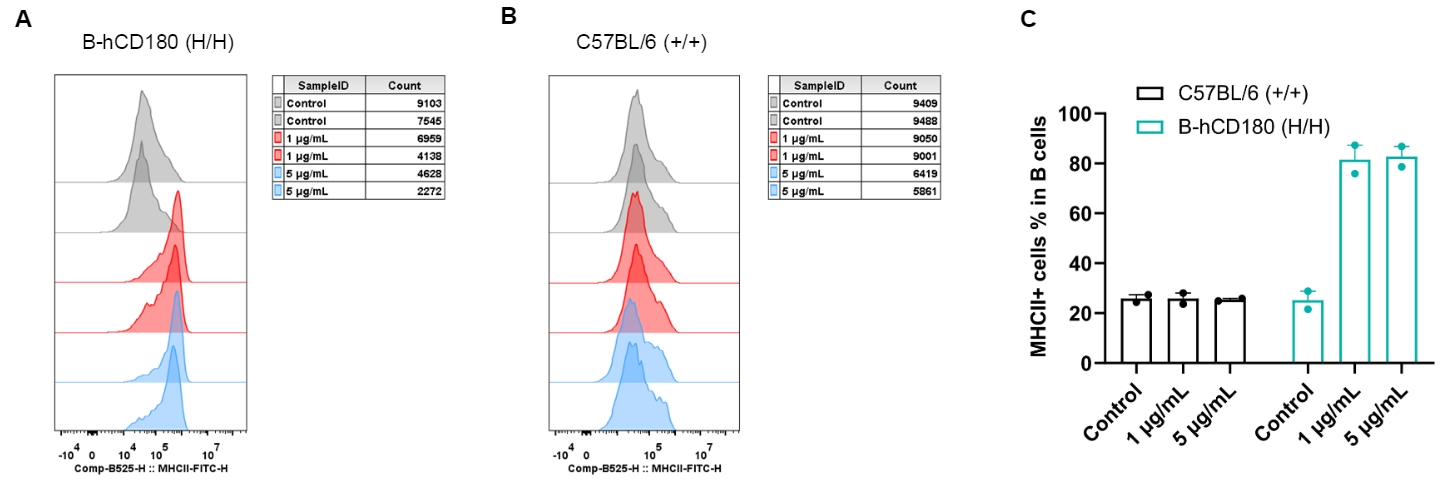
MHCII expression analysis in homozygous B-hCD180 mice by flow cytometry. Splenocytes were collected from wild-type C57BL/6 mice (+/+) (n=2, female) and homozygous B-hCD180 mice (H/H) (n=2, 1 female and 1 male), and cultured in 96-well plate with or without anti-human CD180 antibody stimulation (1, 5 μg/mL) for 24 h. Then cells were harvested and analyzed by flow cytometry. After anti-human CD180 antibody stimulation, MHCII expression was up-regulated in the B cells from homozygous B-hCD180 mice (A) but not in the B cells from wild-type mice (B). (C) Frequency of CD86 expression level in both wild-type and homozygous B-hCD180 mice.